#Otto Gebühr
Explore tagged Tumblr posts
Text

Otto Gebühr as Frederick the Great.
Der Choral Von Leuthen 1933.
#movies#frederick the great#18th century#1700s#This movie has the most beautiful scenes#One of the many reasons why I prefer old movies#Der Choral Von Leuthen 1933#Otto Gebühr
6 notes
·
View notes
Text
Dread by the Decade: Der Golem, wie er in die Welt kam
👻 You can support me on Ko-fi! ❤️
Note: Sometimes I miss films from prior decades that are really worth a watch and double back!
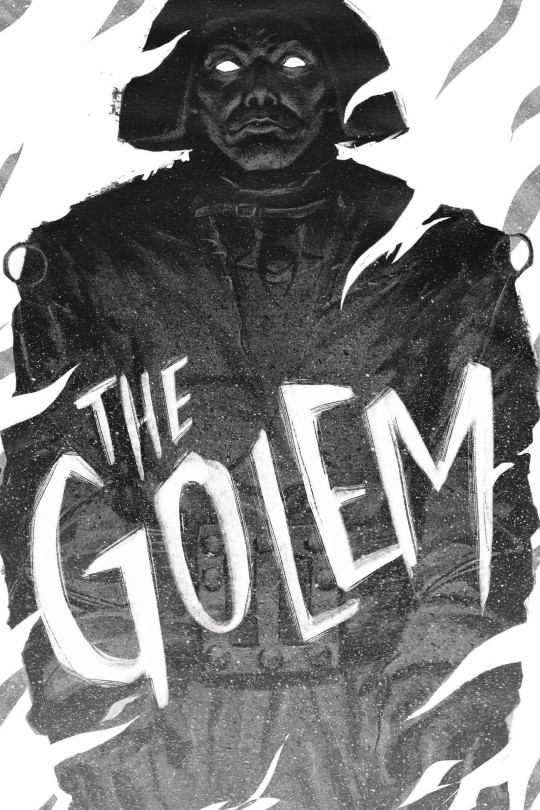
★★★★
Plot: When his people face persecution and displacement in medieval Prague, a rabbi creates a golem to protect them.
Review: Though its lack of accuracy regarding Jewish beliefs is a detriment, this film remains remarkably cinematic and evocative in its approach.
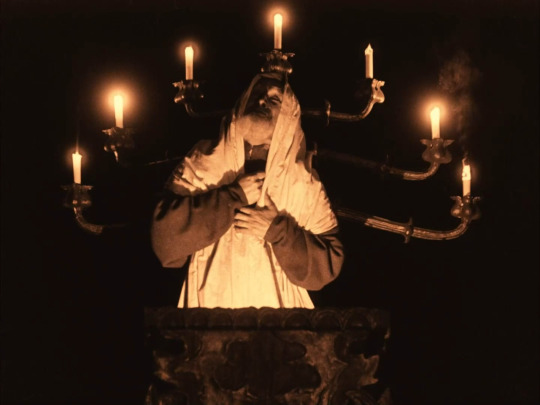
English Title: The Golem: How He Came into the World Source Material: The Golem by Gustav Meyrink Year: 1920 Genre: Supernatural Horror, Occult Country: Weimar Republic/Germany Language: Silent Runtime: 1 hour 31 minutes
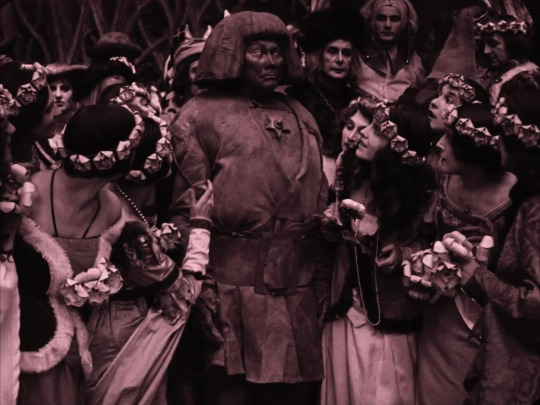
Directors: Paul Wegener, Carl Boese Writers: Henrik Galeen, Paul Wegener Cinematographers: Karl Freund, Guido Seeber Composers: Hans Landsberger, Lukasz Poleszak Cast: Albert Steinrück, Lyda Salmonova, Paul Wegener, Ernst Deutsch, Lothar Müthel, Otto Gebühr
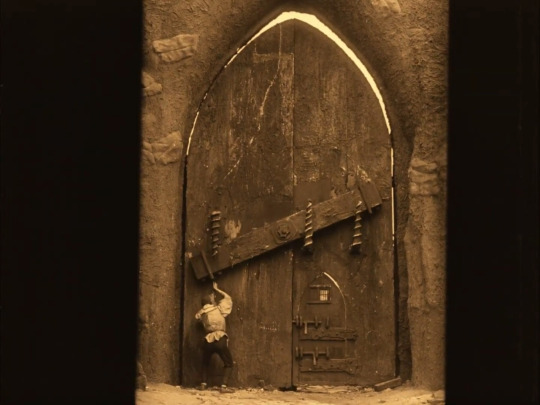
-----
Story: 4/5 - Its mistakes regarding Jewish beliefs are often glaring, but the core of the story is compelling and shockingly progressive for its time.
Performances: 4/5 - Steinrück and Wegener are both wonderfully expressive.
Cinematography: 5/5 - Stunningly lit and framed.
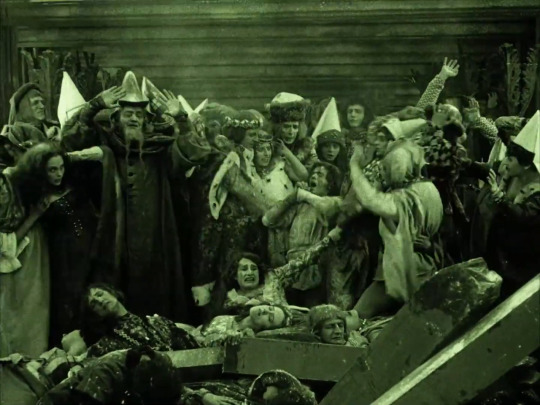
Editing: 4/5
Effects & Props: 4/5 - The castle collapse and smoke effects hold up well.
Sets: 4.5/5 - Well dressed. Their scale is outstanding for the time.
Costumes, Hair, & Make-Up: 3.5/5 - Some costumes are lovely but the golem looks rather cheap.
youtube
Trigger Warnings:
Mild violence
Antisemitism (criticized by film)
Inaccurate representation of Jewish beliefs and folklore
#Der Golem wie er in die Welt kam (1920)#Der Golem wie er in die Welt kam#The Golem: How He Came into the World (1920)#The Golem: How He Came into the World#German#Paul Wegener#supernatural horror#occult#Dread by the Decade#review#1920s#★★★★
6 notes
·
View notes
Text
Choose your favorite Crown Prince:
Otto Gebühr (Fridericus Rex) [1921-1923]
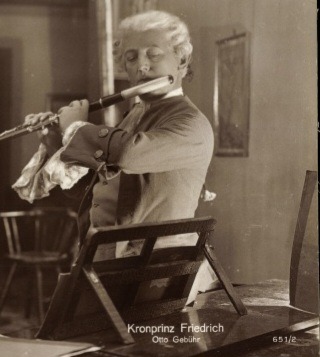
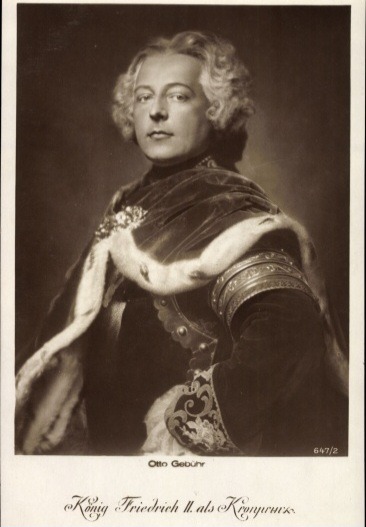
Werner Hinz (Der junge und der alte König) [1935]
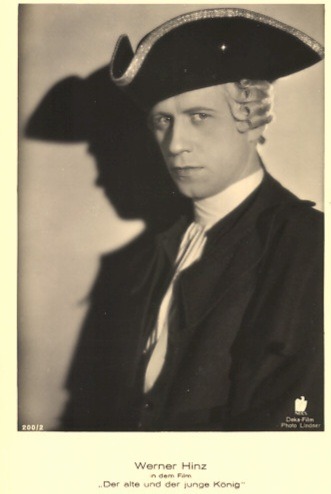
Jan Kollwitz (Der Thronfolger - Die harten Jugendjahre von Friedrich dem Großen von Preußen) [2010]

Cecil von Renner (Friedrich der Große - Alles oder nichts) [2011]
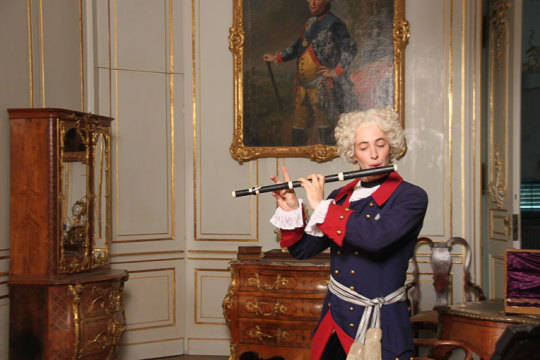
Anna Thalbach (Friedrich - Ein deutscher König) [2012]
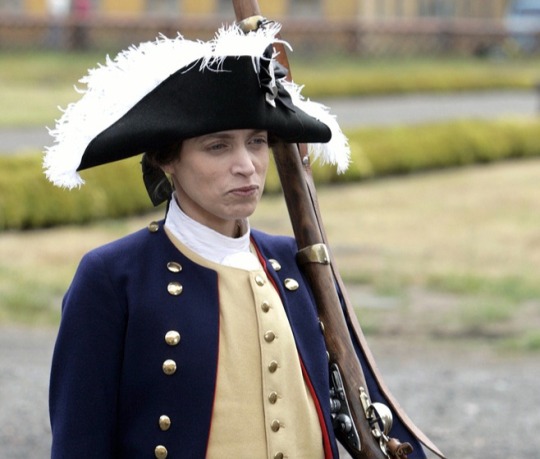

Tobias Bieri (Friedrich - Mythos und Tragödie) [2012]

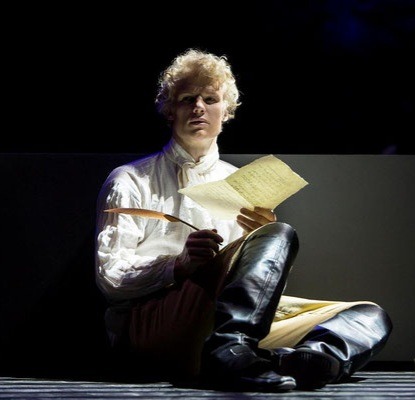
21 notes
·
View notes
Text
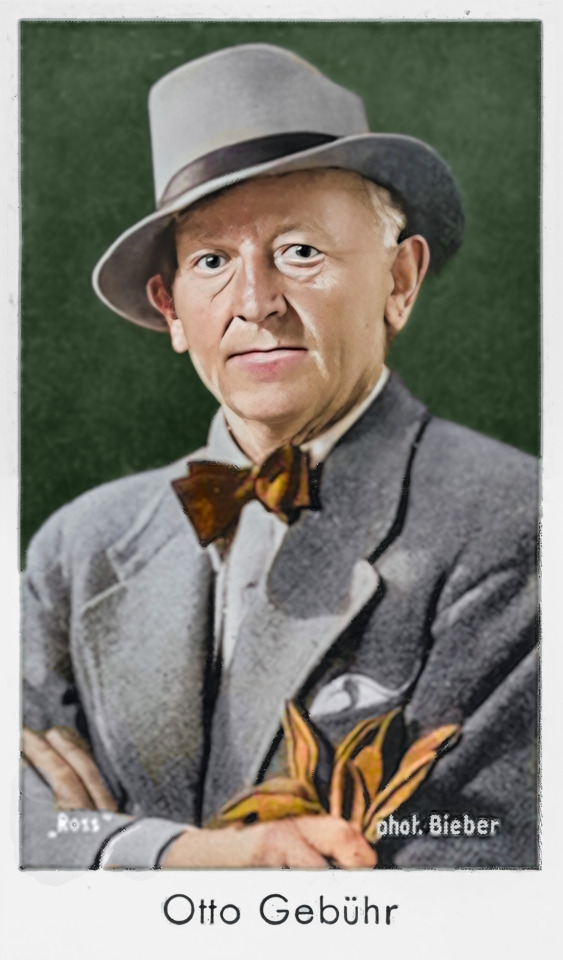
1934 Otto Gebühr (* 29. Mai 1877 in Kettwig/Ruhr; † 13. März 1954 in Wiesbaden) war ein deutscher Schauspieler - Bild Nr. 324. - Diese Serie Caid-Zigaretten umfaßt 360 Bilder. MASSARY GmbH Cigarettenfabrik, Berlin-Mitte, Rungestr. 19
#Sammelbild#Sammelalbum#Star#Stars#Darsteller#Schauspieler#Filmschauspieler#Sammelbilder#Sammelalben#Werbung#Werbebilder#Sammleralbum#Zigarettenwerbung#Marketing#Reklame#Farbfoto#Design#Illustration#Druck#MASSARY GmbH Cigarettenfabrik#Deutsches Reich#Weimarer Republik#Drittes Reich#Zigarettenalbum#Retro#vintage#Otto Gebühr
0 notes
Text
BLOGTOBER 10/6/2022 - GOLEMANIA! PT 1: DER GOLEM - HOW HE CAME INTO THE WORLD
For Blogtober 10/6 and 10/7, I examined two films about Jewish mysticism, both made by non-Jews, both long unavailable (or simply not available enough), and both fine examples of the style and visual capabilities of their times.
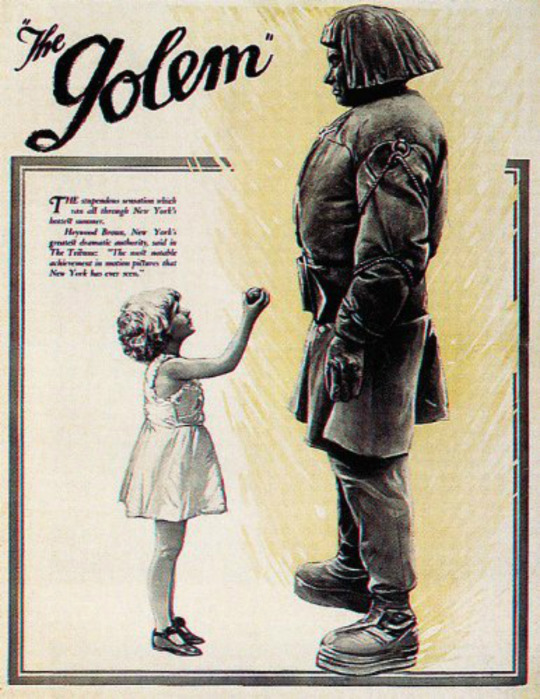
Though THE GOLEM: HOW HE CAME INTO THE WORLD represents an important beat in the development of German expressionist cinema, and any self-respecting nerd has seen plenty of beguiling stills from it, not as many people know it well enough to discuss it on the level that NOSFERATU or THE CABINET OF DR. CALIGARI enjoy. This is surely relatable to availability issues—in fact, the film is part of a trilogy, along with 1915's THE GOLEM and the 1917's THE GOLEM AND THE DANCING GIRL (apparently a primordial example of a horror-comedy!), but these other two are lost to time. The 1920 release, which I'll call DER GOLEM for convenience's sake, is the result of director and star Paul Wegener's desire to update his first effort, which was compromised by a number of disappointing production problems. So, it seems that if we can only have one of his Golem movies, it may as well be this one.
DER GOLEM is the collaboration of writer-director Wegener, his co-writer Henrik Galeen (see also: NOSFERATU), and his co-director Carl Boese, who I assume was especially necessary as Wegener himself plays the title role. The film is adapted from a novel by Austrian author Gustav Myer, which is further based on a Jewish folk tale, and it is interesting to see how this Germanic creative team express their impressions of the history of Jewish persecution. Some critics have found antisemitic underpinnings in the film, largely due to the (delightfully) frightening depiction of the esoteric practice that activates the Golem (which may have a deeper meaning than is immediately apparent), but that would be throwing the baby out with the bathwater. Despite the film being rather brief and broad, it is full of complex, sympathetic characters who transform significantly as the narrative unspools.
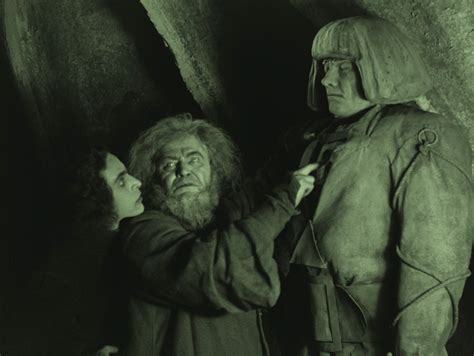
The story takes place in the Jewish ghetto of medieval Prague, where the venerable Rabbi Loew (Albert Steinrück) reads a warning in the stars predicting an imminent danger to his people. Sure enough, an edict comes down from the Holy Roman Emperor (Otto Gebühr) condemning the Jews for their evil character, and ordering their expulsion from the region. Loew creates a hulking clay protector who is brought to life by a sacred word hidden in a star-shaped talisman lodged in his chest, and thinks to impress and entertain the Emperor with his abilities in order to ameliorate the situation. The Golem makes a big splash in the Emperor's court, but the Rabbi's other demonstration doesn't go so well; he implores his audience not to laugh or speak during a magical cinematic projection of the history of the Jewish people, but they can't contain themselves, and the palace begins to crumble. When they are saved by the Golem, the Emperor gratefully rescinds his edict.
Now, this may be enormously crass of me, but I really, deeply think it would be incredibly great if Alamo Drafthouse made one of their pre-show warnings out of this scene. DON'T TALK. DON'T TEXT. OR THE GOLEM WON'T SAVE YOU FROM THE SUPERNATURAL DESTRUCTION OF YOUR EMPIRE.

The other thing I'd like to casually note about this first section, just because it's something I happen to know a little bit about, is that Rabbi Loew's invocation of the goetic demon Astaroth is not really equatable with the idea of devil worship that some viewers have extracted from this—which is fair, because this isn't easy to understand, nor is it readily accessible information. But (and I'm speaking very colloquially here) Astaroth is said to have mastery over esoteric knowledge, and one would work with him in order to gain more occult (for lack of a better word) enlightenment; so, it makes sense that he gives Rabbi Loew the sacred animating word. The other thing about working with demons is that they represent some set of what are usually considered to be negative characteristics: say, slander, wrath, vengeance, etc. So you might work with one of them to deflect these archetypal energies if they are directed at you by someone else. But, you'll also want to be prepared to address these elements in a mature and intelligent way, lest you be overtaken by them yourself. The final effect would be that you've learned an important lesson, and can't be harmed or dominated by whatever malefic characteristic you're dealing with.
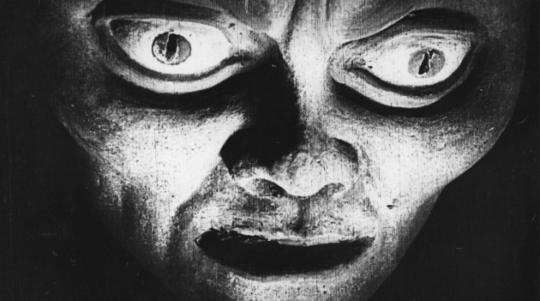
Once the Golem has served its purpose in averting the persecution of the Jews, Loew receives a warning that Astaroth may take it over and use it for vengeful violence. Loew wisely deactivates the creature, but while he goes out to join in communal celebrations, his Assistant makes a big mistake. (The Assistant is played by Ernst Deutsch, a Jewish actor and athlete who I just saw a couple days ago in ISLE OF THE DEAD! I didn't make a note of his wonderful performance as the gently cynical doctor in that film, and now I'm sorry about it) He has fallen in love with the Rabbi's daughter Miriam, and is appalled when he discovers her affair with the Emperor's arrogant squire Florian (Lothar Müthel). The Assistant sets the Golem on Florian, but of course the situation spins out of control, forcing Rabbi Loew to save the community once again.
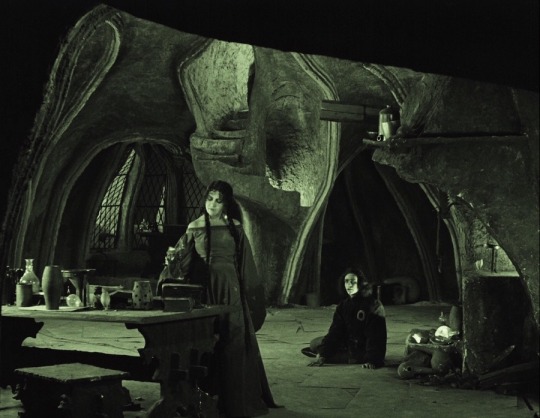
The Golem is an obvious ancestor of Frankenstein's monster, and his misadventure is startlingly similar to that of the better-known creature. Paul Wegener's expressive performance evokes the same range of anger, fear, and naive desire, and his moving interaction with an innocent child is abundantly familiar. In general, DER GOLEM is competitive with FRANKENSTEIN in its emotional complexity; even its villains are tragically human, driven at first by selfish compulsions, but faced with the consequences of their actions, they are sincerely penitent. Even the basics of antisemitism are addressed handily in the film, as the Jews' spartan existence in the ghetto, where their greatest treasures are their traditions and sense of community, flies in the face of the Emperor's accusation that they are avaricious and materialistic. (This coming down from a man bedecked in finery sitting on a gleaming throne, naturally)
The principle gift of DER GOLEM is its advanced aesthetics, owing to the fine work of master cinematographer Karl Freund and architect Hans Poelzig. But the film is bigger than its contributions to film history, telling a sensitive tale that is still surprising in its depth and thoughtfulness. I was glad to see there are new blu ray releases of the film from the last few years, and I'm excited to get my hands on one.
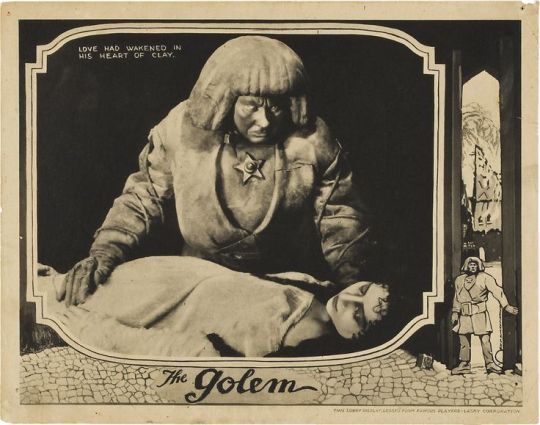
#blogtober#blogtober 2022#golemania#the golem: how he came into the world#der golem: wie er in die Welt kam#paul wegener#carl boese#karl freund#henrik galeen#gustav myer#Albert Steinrück#Otto Gebühr#Ernst Deutsch#Lyda Salmonova#horror#folk horror#german expressionism#hans poelzig#supernatural#occult#esoterism#frankenstein#religion
8 notes
·
View notes
Photo
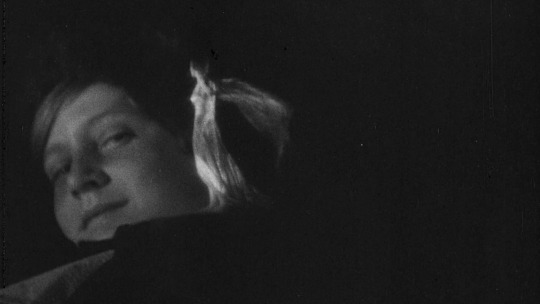
The Erl King (Le roi des aulnes), Marie-Louise Iribe (1930)
#Marie Louise Iribe#Pierre Lestringuez#Peter Paul Brauer#Joë Hamman#Mary Costes#Rosa Bertens#Otto Gebühr#André Michaud#Raymond Lapon#Robert Batton#Émile Pierre#Max d'Ollone#1930#woman director
11 notes
·
View notes
Photo
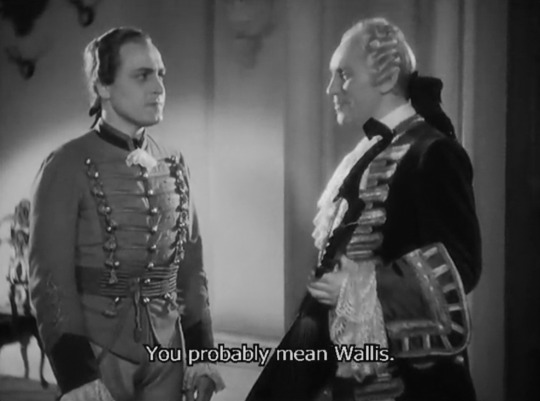
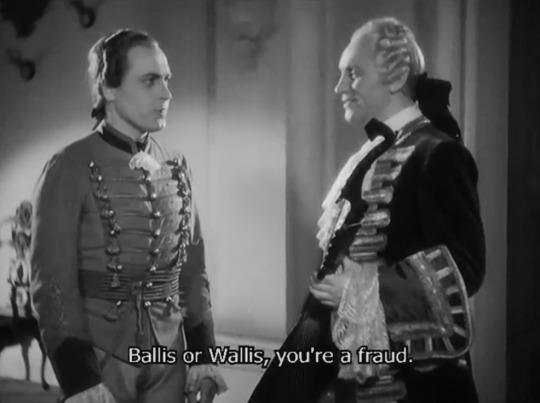
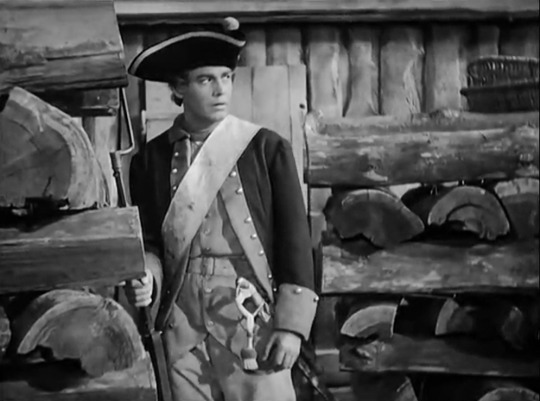
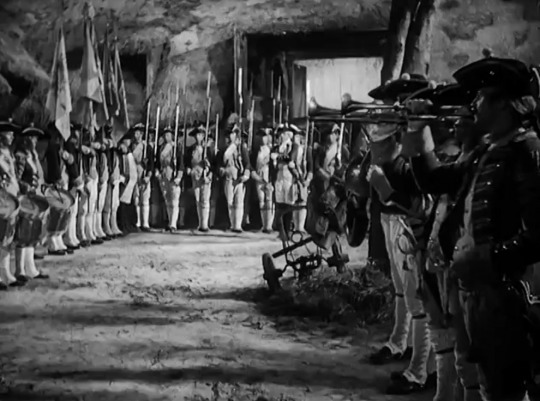
#fridericus#johannes meyer#1937#bernhard minetti#john malkovich#j'accuse#roman polanski#barry lyndon#stanley kubrick#heinrich böll#entfernung von der truppe#otto gebühr
1 note
·
View note
Photo
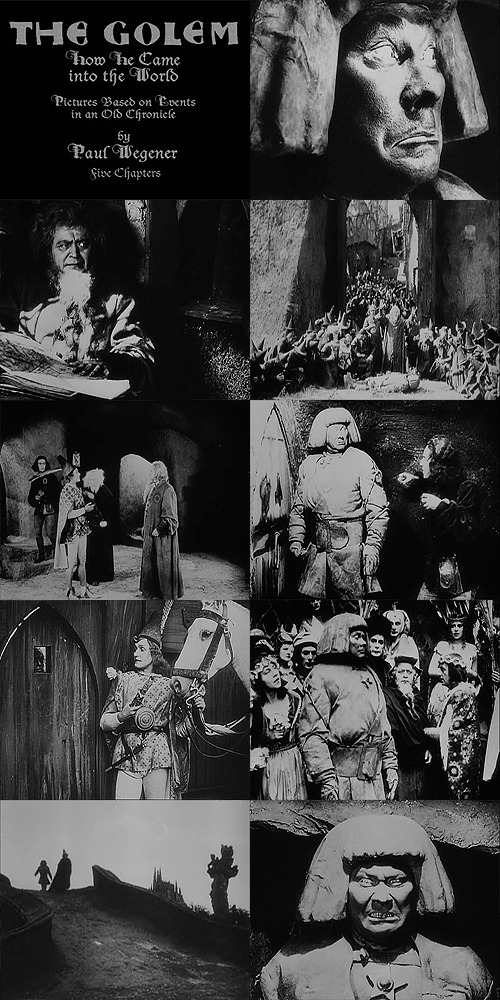
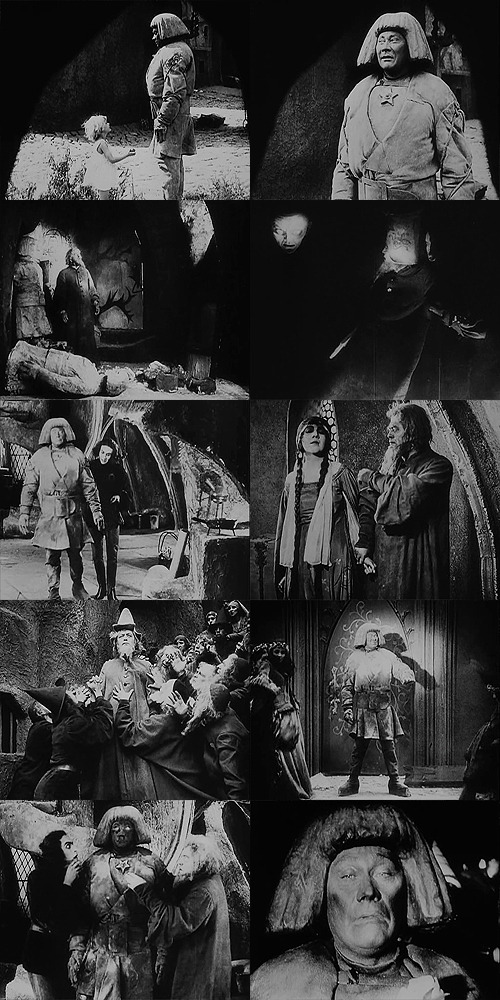
Films Watched in 2018:
75. Der Golem - wie er in die Welt kam/The Golem - How He Came Into The World/The Golem (1920) - Dir. Paul Wegener/Carl Boese
#Der Golem wie er in die Elt kam#The Golem - How He Came Into The World#The Golem#Paul Wegener#Carl Boese#Albert Steinrück#Lyda Salmonova#Ernst Deutsch#Hans Sturm#Otto Gebühr#Greta Schröder#Silent Horror#German Expressionism#Films Watched in 2018#My Edits#My Post
5 notes
·
View notes
Text
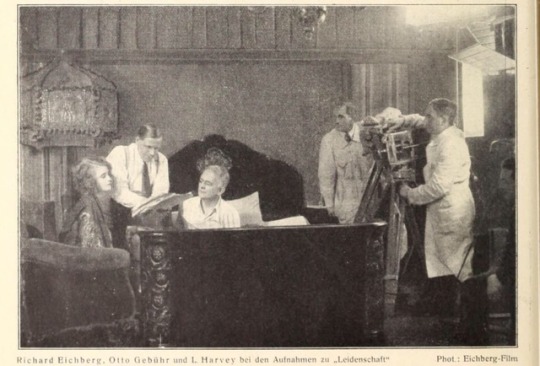
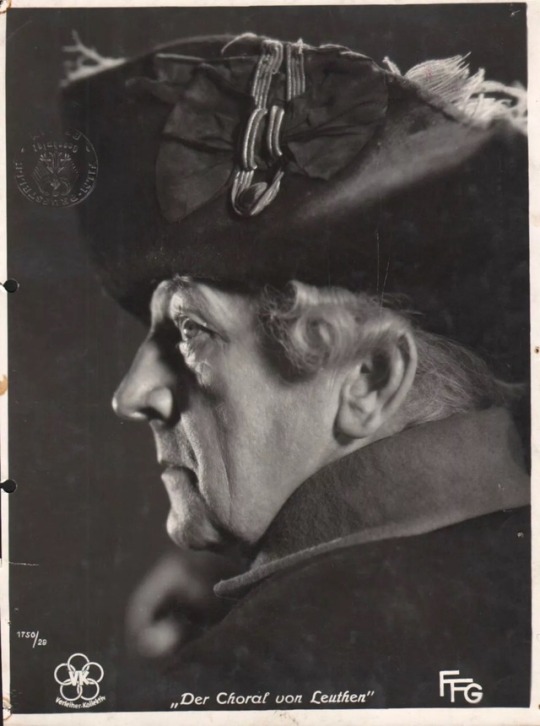
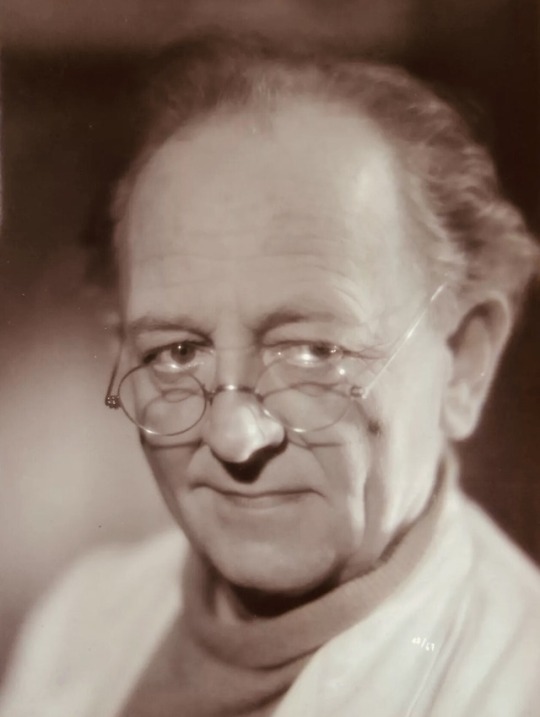
Forgotten actors of the 20th. century. Otto Gebühr, 1877-1954. His Summerhouse still exist on the island of Hiddensee,baltic sea.
2 notes
·
View notes
Text
Pop Culture Kattes Part 2 - A Collection of filmed Kattes
What did the invention of Film lead to if not an abundance of new Kattes for me to rate. As usual, the rating system is made up and the points don't mean a thing.
PART I
Cserépy-Film Co. GmbH - Fridericus Rex. Teil 1: Sturm und Drang (1921)
The first of many Fridericus Rex movies! Sadly I can't get ahold of a copy of this movie (there appears to be one in the Archives françaises du film...) and the reviews focus mostly on Otto Gebühr as Fritz. However, we do have two images of Friedrich Wilhelm Kaiser as everyone's favourite traitor:
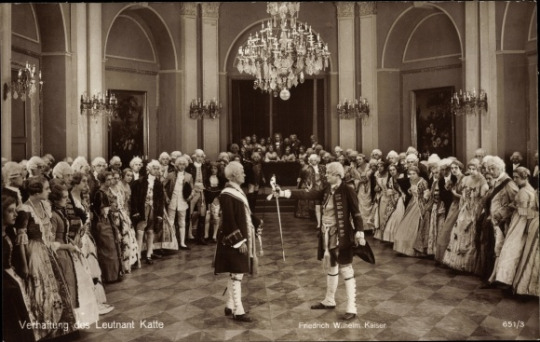
Yes, okay, the honorable Lieutenant getting arrested at the ball, very nice. Ugly wig, but what else is new. Pretty standard Katte, as it seems. Now, what is the second pictu-
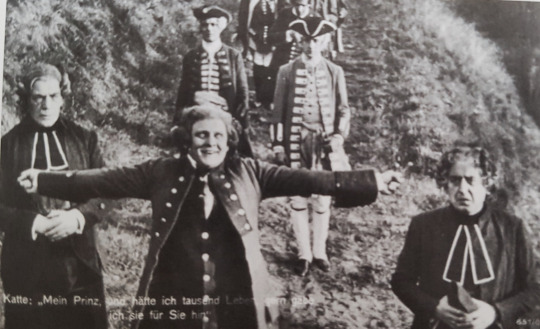
... Sheesh, that's terrifying. VERY happy to die for a Prince that he loves, that one. Also where are they? Definitely not Küstrin, by the looks of it. And why does the priest on the left look like Ian McKellen's grandpa in a Princess Leia wig?? So many questions that will never be answered.
Overall rating: ???
Deka-Film GmbH - Der alte und der junge König (1935)
We're moving on to the Nazi-Propaganda-stage of the Fridericus movies. But we're not here for an in-depth analysis (which would be warranted...), we're here for Katte! Portrayed by Claus Clausen, who would move on to play Prince Henry in another Fridericus movie seven years later and definitely looks more like Henry than Katte imo. He's all angles and cheekbones and light eyebrows and is ten years too old for Katte (and way too tall for either of them). The acting is... intense. There's no better word for it, every move he makes is intense.
Character wise, uh... he's a tough one, but he softens over the course of the movie. In his first appearance he shows up out of the blue in a pose that screams "ready to fight", in his second scene he tells Fritz that he's ashamed of him. Actual dialogue: "Are you Katte or are you the King?" "I am Katte. 😡😡 Your friend. 😡😡" He's SUPER passionate about being a soldier ("You pull me into this, ME, the SOLDIER Katte!!" who almost didn't return from England just a year prior, but ANYWAY). We get a scene with Wilhelmine discussing the miniature portrait he refused to return; as per usual it is conveniently forgotten that Fritz was also in this miniature portrait in favour of some romantic subtext. Katte gets all shy around her, which is surprising because in his scenes before that all he did was yell. I'd probably find it somewhat endearing, if they weren't Katte and Wilhelmine. We later see him in jail, gazing fondly at the miniature of JUST Wilhelmine before telling Müller to hand it to Fritz together with his last letter.
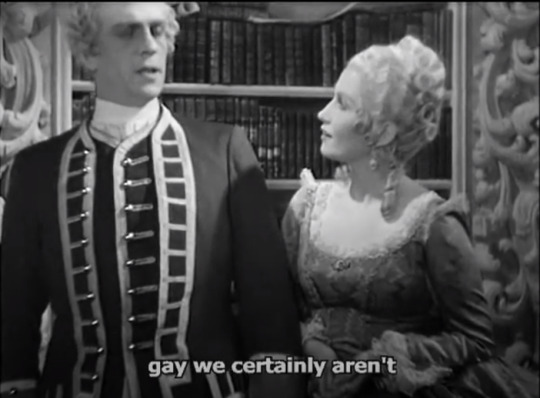
Indeed, Katte, indeed. Speaking of the portrait: We aren't told that he painted it himself. He just... has it. For reasons. We aren't told about his musical talents either; all we know about him is that he's a man of honour and a soldier in an unspecified regiment in Potsdam. He does have his moments, his dynamic with Fritz improves drastically after the first two scenes and he does seem like he cares, especially after witnessing one of FW's freakouts while hiding in the closet (lol). And he gets to comfort Fritz a little bit after that. After doing a complete 180° considering his views on desertion, he dies for a master he loves and would sacrifice 1000 lives for him. Could have used some more friendly scenes with Fritz or any scenes of what Katte did between agreeing to desert and dying, but the main character of this movie is FW, so we can't afford that. Despite some early difficulties I'd say he's a pretty solid Katte. I like a few scenes. Nothing special, but nothing egregiously bad either.
Overall rating: 5/10 intense stares, watchable mainly for comedic FW scenes
ZDF (Zweites Deutsches Fernsehen) - Der Thronfolger (1980)
Finally, a Katte with proper eyebrows!! Other than that, his biggest contribution is to help hide the affairs of the straightest and horniest Crown Prince known to film from a far too chill FW. How does he do that? Who knows. Once again we are treated to very few scenes of him and Fritz spending time together and actually being friends. We get about one and a half. Blergh. Character wise, he's... eh. Doesn't do much. Smiles more than other Kattes. Says that he adores Fritz and reads Voltaire with him, so at least we get a hint at his intellectual pursuits; no other hints at what he does apart from his job as Some Guy Who Follows FW Around. Has the audacity to grab Mine's arm and pull her back into her seat. We do get an interrogation scene where he claims to have done his best to thwart Fritz's plans at all times (none of which was shown to us) and before the execution he talks about how he pretended to be an atheist for clout for a while (which was also not shown to us). Other than that, we barely get to know Katte despite him meeting Fritz almost two years too soon. And his last words to Fritz are "Nothing of forgiveness. My death is an act of divine justice" which... is better than "Long live the King", I guess...? Eeeeh, didn't like it...
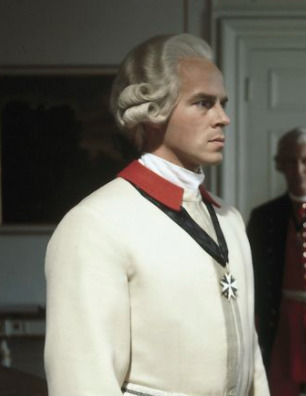
However: Aesthetically speaking, I'd say he's probably the best on this list. At 33 Jan Niklas is a little old (especially when he moves his face and looks 40 next to Fritz who is 20 and looks 12) and a wig that high with a forehead that high was... a choice (we're not quite entering Henry territory yet...), but look-wise he's pretty solid overall. I'll admit it, I'm just really happy about the eyebrows. Dark eyes, dark eyebrows, at least somewhat tan complexion - nice.
Overall rating: 3/10 splendid eyebrows, wouldn't recommend this movie overall, mainly because Fritz is kind of terrible imo
ARTE - Friedrich. Ein deutscher König (2011)
The One With The Women As Fritz and one Kai Michael Müller as Katte. He recently played a corpse in a Tatort that I saw, that was interesting. Anyway. The movie is a 90 minute documentary about Fritz's entire life, so he's only in it for a few minutes. Not much of a character to judge, but at least he's not in love with Wilhelmine in this one. He does get that scene where he buttons Fritz's uniform and comments on how good he looks in it... And the narration tells us about his musical interests, his military career, and how close he was to Fritz. So we've got the basics down.
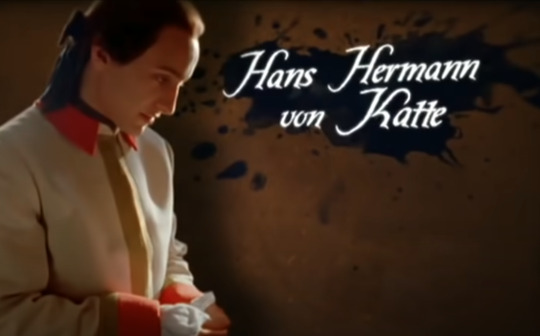
Aesthetically speaking, Kai Michael Müller is, once again, no Katte. Interestingly, instead of being too old like everyone else, he is actually too young - He's 30 now, and the movie is ten years old! Dang. Acting wise, it's... It's a documentary, I've seen worse. Some varying intonation would be nice though, maybe some emotion behind his lines... He talks like a soccer player in a post-game interview. I personally love how they do the keyhole-zoom-out thing over Fritz and Katte's faces and then cut to Dorgerloh saying "Well, we don't KNOW what they did and I don't want to speculate" - You may not, but Arte sure does.
Overall rating: 4/10 homoerotic things behind closed doors, watchable for a documentary
Spotlight Musicals - Friedrich. Mythos und Tragödie (2012)
Oh, FMuT, the things we could have had... I have feelings about this thing, considering I've spent hours of my life subbing it. This Katte is so straight, he's barely even friends with Fritz. Which is pretty much the worst you can do. I don't even expect people to make their relationship romantic, I'd just like them to portray a good friendship for once... Whenever they're on stage together during his lifetime, Katte is usually preoccupied with Wilhelmine and doesn't spare Fritz a second glance. Which is even weirder when you consider that the very same Fritz apparently felt so strongly about him that he hallucinated his ghost before he died (The whole thing reads as "Fritz is in love with him and Katte is too dumb and Wilhelmine-focused to notice, but also we didn't want to lose our conservative audience by making Fritz anything but straight, so we gave Countess Orzelska a sexy solo to cement his heterosexuality").
They don't even have a duet. Katte has major singing parts in his duet with Wilhelmine (which I skip every time) and a song with Mine and Fritz, is in the ensemble for maybe two more songs and gets two lines in the finale; LET HIM SING, GOD DAMNIT, HE'S ON STAGE 90% OF THE TIME! The very cool concept of Ghost Katte showing Fritz how much he's changed over the years was truly wasted on this show - as was Bienvenue in Sanssouci, because that song is a banger. But hey, at least they hug twice and we get that kiss we didn't get in Zeithain...? Even if it's played for a laugh...? Yay...? His personality is alright, I guess. He hides Fritz's flute, protects him from FW once and dreams of a more cultured future while still being very much a military man (in the infantry, for staging reasons...) and ghost-Katte is not afraid to tell Fritz that he thinks he sucks. We just don't really get why he even cares about Fritz in the first place or why Fritz cares about him. Oh, and he doesn't get ANY last words. What the fuck.
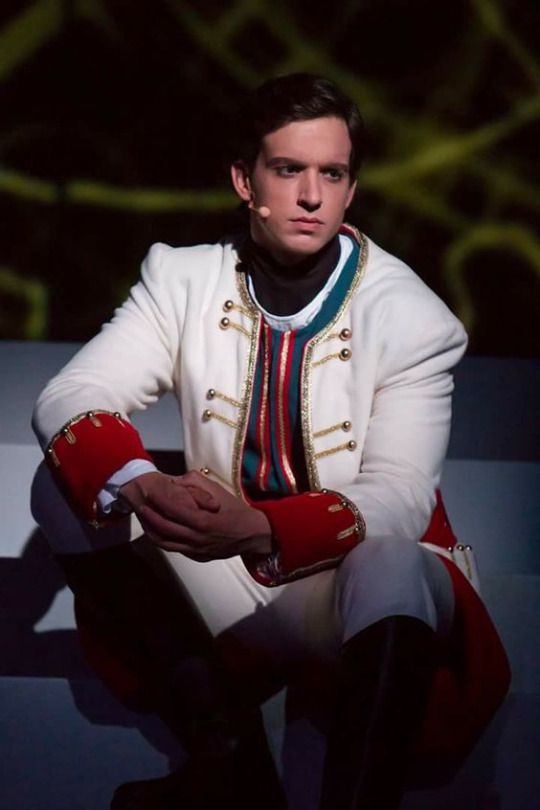
As for his looks: Maximilian Mann doesn't necessarily look like Katte, but it's better than others and at least he was about the right age (24 in the 2012 run, 26/27 when it came to Fulda two years later). In this specific picture, he even has acceptable eyebrows and the gloomy look that Wilhelmine mentions! A wig could have been nice (apparently they used one for another actor...?), but considering the wig quality we see on other people on stage, maybe it's good they went with his natural hair. I feel like I'm being a little hard on this one, but I love musicals and thus I'm very mad about the wasted potential. Also the man can sing, I've seen him live, give him a solo.
Overall rating: 4/10 Nonexistant duets, fun if you skip the right songs
And that's all for today, folks! One kissing gif for the road:

PART III
43 notes
·
View notes
Text

Lilian Harvey (born Helene Lilian Muriel Pape, 19 January 1906 – 27 July 1968) was an Anglo-German actress and singer, long based in Germany, where she is best known for her role as Christel Weinzinger in Erik Charell's 1931 film Der Kongreß tanzt.
Harvey was born in 1906, in Crouch End, North London. Her mother, Ethel Marion (Laughton), was English, and her father, Walter Bruno Pape, was a German businessman. At the beginning of World War I the family found itself in Magdeburg, and as they were unwilling and unable to return to England, Harvey was sent to live with an aunt at Solothurn in Switzerland. After the war, the Papes lived in Berlin, where Lilian took her high-school diploma (Abitur) in 1923. She began her career by attending the dance and voice school of the Berlin State Opera and assumed her grandmother's maiden name (Harvey) as her professional surname.
After an engagement as a revue dancer in Vienna in 1924, Harvey received her first movie role as the young Jewish girl "Ruth" in the Austrian film The Curse directed by Robert Land. Subsequently, she starred in many silent films. In 1925, she was cast in her first leading role in the film Passion by Richard Eichberg, side by side with Otto Gebühr.
Because of her training as a singer, Harvey was able to pursue a successful acting career during the initial talkie era of the early 1930s. Her first movie with Willy Fritsch was the operetta film Chaste Susanne in 1926. Harvey and Fritsch became the "dream couple" of German movies in the early 1930s with the romantic love story Waltz of Love; she was called the "sweetest girl in the world" by the press, after a song featured in the film. She and Fritsch starred in a total of 11 movies together, among them the criminal comedy Hokuspokus (1930) after a play by Curt Goetz, directed by Gustav Ucicky, which became a box office success. An English version (The Temporary Widow) was filmed simultaneously, starring Lilian Harvey and Laurence Olivier, who thereby made his film debut. She also appeared in the musical film The Three from the Filling Station of the same year, which also became a major success and gave the young actor Heinz Rühmann his break. During this period she became the muse of the composer Charles Koechlin who, in his sixties, wrote numerous pieces in her honour; initially flattered, she soon became disturbed by his apparent obsession with her.
In 1931, Harvey played the leading part in the film Der Kongreß tanzt (The Congress Dances); her song Das gibt's nur einmal written by Werner R. Heymann became a most popular melody. Her subsequent movies were filmed in English and French versions, so Harvey became known outside of Germany. She was invited to Hollywood and made four movies for the Fox Film Corporation, but these were not as successful as her German films. She eventually abandoned George White's Scandals, leading executives to cast Alice Faye in the part, and Faye became an overnight sensation. After leaving Hollywood she appeared in a British film Invitation to the Waltz. In 1935, Lilian Harvey returned to Germany.
After the war, Harvey moved to Paris. In the following years, she travelled as a singer through Scandinavia and Egypt. In 1949, she returned to West Germany giving several concerts. Harvey retired to the resort town of Antibes on the French Riviera, where she operated a souvenir shop and raised edible snails.
From 1953 to 1957, Harvey was married to Danish theatre agent Hartvig Valeur-Larsen.
As she was still in touch with her Jewish colleagues, Harvey was placed under close observation by the Gestapo.[citation needed] Nevertheless she pushed the career of her protégé, director Paul Martin, performing in his screwball comedy Lucky Kids (1936) and further successful movies for the UFA until 1939, such as Seven Slaps, the biographical film Fanny Elssler (1937) together with Willy Birgel and Capriccio; as well as Frau am Steuer in 1939.
In June 1937 Harvey had helped the choreographer Jens Keith, prosecuted under the homosexual acts Paragraph 175, by posting a bail for him. Released from custody, Keith escaped to Paris; this led to a stern interrogation by the Nazi authorities. He subsequently returned to Berlin and UfA. In spring 1939, Harvey left Germany and her real-estate fortune, which was confiscated[citation needed]; she was to be deprived of her German citizenship in 1943 because she had performed for French troops.
Harvey went to live at her residence in Juan-les-Pins in Vichy France. In France she made two movies in 1940 – Serenade and Miquette (her last), both directed by Jean Boyer. After the occupation of southern France by German forces in November 1942, Harvey emigrated to the USA spending most of the time in Los Angeles working as a volunteer nurse, but also went on tour performing in Noël Coward's Blithe Spirit.
From 1953 to 1957, Harvey was married to Danish theatre agent Hartvig Valeur-Larsen.
Lilian Harvey died of liver failure on 27 July 1968 in Juan-les-Pins, aged 62. She was buried at the Robiac Cemetery in Antibes.
#lilian harvey#classic hollywood#classic movie stars#golden age of hollywood#old hollywood#silent era#silent movie stars
8 notes
·
View notes
Text

Otto Gebühr as Frederick the Great in Der Choral Von Leuthen 1933.
4 notes
·
View notes
Text

Lilian Harvey (born Helene Lilian Muriel Pape, 19 January 1906 – 27 July 1968) was an Anglo-German actress and singer, long based in Germany, where she is best known for her role as Christel Weinzinger in Erik Charell's 1931 film Der Kongreß tanzt.
Harvey was born in 1906, in Crouch End, North London. Her mother, Ethel Marion (Laughton), was English, and her father, Walter Bruno Pape, was a German businessman. At the beginning of World War I the family found itself in Magdeburg, and as they were unwilling and unable to return to England, Harvey was sent to live with an aunt at Solothurn in Switzerland. After the war, the Papes lived in Berlin, where Lilian took her high-school diploma (Abitur) in 1923. She began her career by attending the dance and voice school of the Berlin State Opera and assumed her grandmother's maiden name (Harvey) as her professional surname.
After an engagement as a revue dancer in Vienna in 1924, Harvey received her first movie role as the young Jewish girl "Ruth" in the Austrian film The Curse directed by Robert Land. Subsequently, she starred in many silent films. In 1925, she was cast in her first leading role in the film Passion by Richard Eichberg, side by side with Otto Gebühr.
Because of her training as a singer, Harvey was able to pursue a successful acting career during the initial talkie era of the early 1930s. Her first movie with Willy Fritsch was the operetta film Chaste Susanne in 1926. Harvey and Fritsch became the "dream couple" of German movies in the early 1930s with the romantic love story Waltz of Love; she was called the "sweetest girl in the world" by the press, after a song featured in the film. She and Fritsch starred in a total of 11 movies together, among them the criminal comedy Hokuspokus (1930) after a play by Curt Goetz, directed by Gustav Ucicky, which became a box office success. An English version (The Temporary Widow) was filmed simultaneously, starring Lilian Harvey and Laurence Olivier, who thereby made his film debut. She also appeared in the musical film The Three from the Filling Station of the same year, which also became a major success and gave the young actor Heinz Rühmann his break. During this period she became the muse of the composer Charles Koechlin who, in his sixties, wrote numerous pieces in her honour; initially flattered, she soon became disturbed by his apparent obsession with her.
In 1931, Harvey played the leading part in the film Der Kongreß tanzt (The Congress Dances); her song Das gibt's nur einmal written by Werner R. Heymann became a most popular melody. Her subsequent movies were filmed in English and French versions, so Harvey became known outside of Germany. She was invited to Hollywood and made four movies for the Fox Film Corporation, but these were not as successful as her German films. She eventually abandoned George White's Scandals, leading executives to cast Alice Faye in the part, and Faye became an overnight sensation. After leaving Hollywood she appeared in a British film Invitation to the Waltz. In 1935, Lilian Harvey returned to Germany.
After the war, Harvey moved to Paris. In the following years, she travelled as a singer through Scandinavia and Egypt. In 1949, she returned to West Germany giving several concerts. Harvey retired to the resort town of Antibes on the French Riviera, where she operated a souvenir shop and raised edible snails.
From 1953 to 1957, Harvey was married to Danish theatre agent Hartvig Valeur-Larsen.
As she was still in touch with her Jewish colleagues, Harvey was placed under close observation by the Gestapo.[citation needed] Nevertheless she pushed the career of her protégé, director Paul Martin, performing in his screwball comedy Lucky Kids (1936) and further successful movies for the UFA until 1939, such as Seven Slaps, the biographical film Fanny Elssler (1937) together with Willy Birgel and Capriccio; as well as Frau am Steuer in 1939.
In June 1937 Harvey had helped the choreographer Jens Keith, prosecuted under the homosexual acts Paragraph 175, by posting a bail for him. Released from custody, Keith escaped to Paris; this led to a stern interrogation by the Nazi authorities. He subsequently returned to Berlin and UfA. In spring 1939, Harvey left Germany and her real-estate fortune, which was confiscated[citation needed]; she was to be deprived of her German citizenship in 1943 because she had performed for French troops.
Harvey went to live at her residence in Juan-les-Pins in Vichy France. In France she made two movies in 1940 – Serenade and Miquette (her last), both directed by Jean Boyer. After the occupation of southern France by German forces in November 1942, Harvey emigrated to the USA spending most of the time in Los Angeles working as a volunteer nurse, but also went on tour performing in Noël Coward's Blithe Spirit.
From 1953 to 1957, Harvey was married to Danish theatre agent Hartvig Valeur-Larsen.
Lilian Harvey died of liver failure on 27 July 1968 in Juan-les-Pins, aged 62. She was buried at the Robiac Cemetery in Antibes.
#lilian harvey#silent era#silent hollywood#silent movie stars#golden age of hollywood#classic movie stars#classic hollywood#old hollywood
7 notes
·
View notes
Link
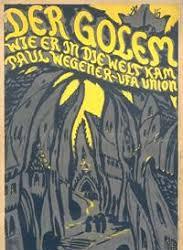
#the golem#carl boese#paul wegener#henrik galeen#albert steinruck#Albert Steinrück#ernst deutsch#religion#silent film#monster#creature#fantasy#germany#german expressionsm#lyda salmonova#hans sturm#Hans Stürm#max kronert#otto gebuhr#Otto Gebühr#dore paetzold#Lothar Müthel#horror#horror film#horror films#horror movie#horror movies#horror fan#horror fans#horror review
0 notes
Photo
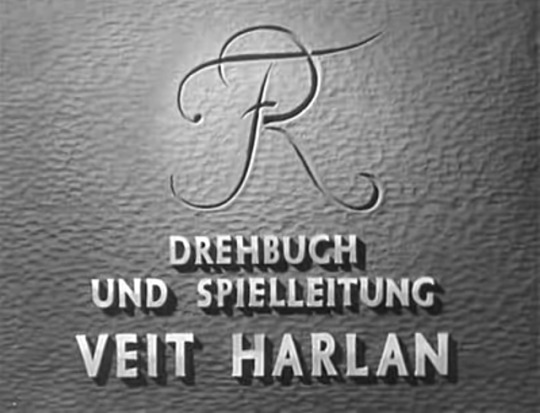
der größe könig (1942)
0 notes
Text
Catweazle...
...ist ein charmant harmloser Spaß, schnörkellos inszeniert, von Waalkes genau richtig zwischen Otto-Hopserei und Altherrenfreundlichkeit gegeben und mich in seiner Vater-Sohn-Geschichte mehr berührend, als ich erwartet habe - was neben der Tatsache, dass ich derzeit ein wenig arg nah am Wasser gebaut bin vor allem an Henning Baum liegt, dem man als einem der wenigen in der deutschen Filmlandschaft zuzutrauen scheint, eine innere Geschichte auch mal nur über einen Blick zu erzählen, was er denn auch nutzt, um das Ganze zu erden und ihm, wo vielleicht nicht unbedingt Tiefe, so doch Nuancen zu geben.
Der Sohn hat sich kaputtgelacht, ich mich nicht über Gebühr gelangweilt. Eigentlich ein ganz gutes Fazit.
D.C.L.
#Catweazle#Otto Waalkes#Katja Rieman#Henning Baum#fantasy#komödie#kinderfilm#chronicles of d.c.l.#d.c.l.
0 notes